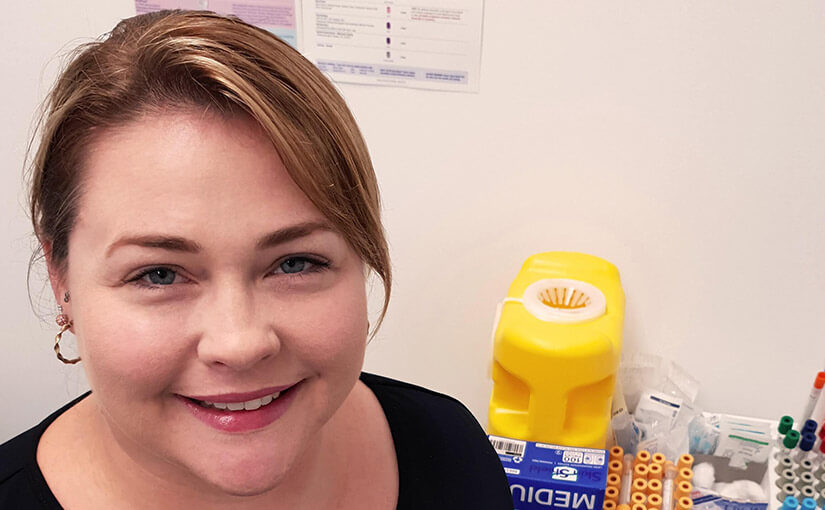In your local GP clinic or health service, most pathology samples will be taken by a trained pathology collector, also called a phlebotomist, or sometimes by a nurse.
- During a blood test, you will be asked by your healthcare professional to take a seat. If you are prone to fainting or dizziness, tell the person taking your sample. They may direct you to lie down to have your sample taken.
- A tourniquet will be placed around your upper arm and tightened to increase the blood pressure in the veins in the lower arm. This makes it easier for the phlebotomist to identify the vein from which blood will be drawn.
- The site in which the needle will be placed will be wiped down with an alcohol wipe to ensure that it is clean, reducing the risk of infection.
- Your healthcare professional will then proceed to insert a small needle into your vein to draw blood into a vial. The vial contains an anti-clotting chemical that preserves the blood for pathology testing. During this period, you may feel a slight pinch or scratch which quickly subsides.
- Once the blood has been drawn, you will be asked to hold a cotton ball or gauze against the site to prevent bleeding. The injection site will then be covered with a sticking plaster or dressing. There may be minimal bruising at the site, but this will fade in a few days.
How do you need to prepare for a blood test?
For the majority of tests, no specific preparation is needed. If you are having a test you have not had before, check with your doctor or whoever ordered the test whether you need to fast, or if there are any foods you should avoid before the test. You should also let your doctor know any medications or supplements you are taking as this could affect the test results.
Ensuring you are well hydrated will help the pathology collector to access your veins easily. As long as you are not fasting you should eat normally, especially if you are prone to dizziness or fainting, or have a fear of needles (trypanophobia) or blood (hemophobia). It is important to tell your collector if any of these conditions affect you so they can be prepared and support you through the blood test.

